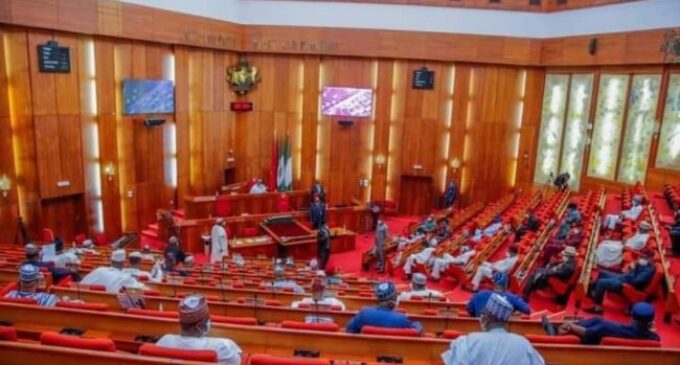How electoral act amendment bill can improve Nigeria’s elections

November 6, 2021. That is the date fixed by the Independent National Electoral Commission (INEC) for the conduct of the off-season governorship election in Anambra state. But a key question that always surfaces each time election is to be conducted is — would there be an improvement in the process or would it be the same old story?
Elections in Nigeria have always been characterised by vote-buying and intimidation, electoral violence, low voter turnout, snatching of ballot boxes and over-voting — from local government, governorship to presidential polls — election in Nigeria is considered as a “do or die affair”.
Every four years, the country spends billions of naira to conduct elections but with little improvement.
For instance, in 2011, Nigeria spent N139 billion on elections; N116.3 billion in 2015 and N189.2 billion in 2019. Yet, the polls were marred by irregularities.
With the malfeasance that has defined the nation’s electoral system, the need to improve the integrity and credibility of the Nigerian electoral process has been a burning issue in recent times.
Currently in the national assembly is the electoral act repeal and re-enactment bill which seeks to solve a plethora of issues peculiar to Nigeria’s polity such as the cost of politics, internal party democracy and the introduction of technology in the electoral process.
BUHARI DECLINED ASSENT TO ELECTORAL ACT AMENDMENT BILL IN 2018
Efforts to get the bill signed into law by the eighth national assembly under the leadership of Bukola Saraki was futile as President Muhammadu Buhari declined his assent — for three consecutive times.
His first rejection was in March 2018 where he said the proposed law would usurp the constitutional powers of INEC to decide on election matters.
In September, Buhari turned down the bill for the second time, asking the national assembly to revise some clauses.
In December when the bill was rejected for the third time, the president said signing it into law could “create uncertainty and confusion” in the forthcoming 2019 elections.
The ninth national assembly has, however, reintroduced the bill and it passed first and second reading.
The clamour for federal lawmakers to accelerate the passage of the bill within the first quarter of 2021 is unprecedented.
STRIKING PROVISIONS OF THE BILL
Former President Goodluck Jonathan said electronic voting is the only way to ensure credible elections in Nigeria.
According to him, the outcome of elections should be decided by the ballots, not by any other means — not even the courts.
“And taking a critical examination about the way elections are being conducted across the continent at least from the once I’ve observed, I’ve seen that the only thing that we must do to get there is through electronic voting,” he said.
“People may feel, yes someone could manipulate, smart boys who can hack into the system and do all kinds of things, yes, but still people still use electronic system to move hundreds of millions of dollars across the world. So I still believe very sincerely that that is the way to go.”
One of the most celebrated provisions of the electoral act amendment bill is section 9 which mandates INEC to embrace technology such as keeping an electronic register of voters in addition to manual or hard copies — making it easier to collate and disaggregate data on voting patterns of different categories of the electorate which will be useful when planning elections.
Linked to this is the amendment that mandates the electoral umpire to use smart card readers which utilise biometrics to authenticate voters.
Section 49 (2) mandates the presiding officer to use the smart card reader or any other technological device prescribed by INEC for accreditation, verification and authentication.
Section 49 (3) adds that “where a smart card reader deployed for accreditation of voters fails to function in any unit and a fresh card reader is not deployed, the election in that unit shall be cancelled and another election shall be scheduled within 24 hours.”
It is expected that incorporating the use of technology in the electoral process will douse a series of court cases that had trailed the use of the electronic device in the elections.
In an interview, Inibehe Effiong, a constitutional lawyer, said the adoption of technology in the electoral process will reduce the incidences of fraud and manipulation.
“The smart card reader is not recognised under the current electoral act. It is only provided for, under INEC guidelines which the supreme court has said cannot be the basis for nullifying election or challenging the outcome of an election,” Effiong told TheCable.
“It is important for the electoral amendment act to be amended to give statutory and legislative backing to the use of smart card reader and of course for electronic collation and transmission of results. That will go a long way to reduce incidences of fraud, human interference and manipulation of the electoral process.
“From what we have seen, the card reader has remarkably improved elections in the country. It is important for that to be given the necessary legal foundation so that INEC can now mandatory comply with the use of card reader and that accreditation can now be determined solely based on technology and not by manual process.”
THE BILL WILL DRIVE YOUTH INCLUSION
Addressing the cost of politics while targeting internal party democracy, for instance, section 87 of the bill prohibits political parties from imposing arbitrary fees on political aspirants and prescribes limits for each elective offices.
The same section also prohibits political parties from imposing nomination qualifications or disqualification criteria, conditions or measures on any Nigerian for the purpose of nomination for elective offices outside of those provided in the 1999 constitution which includes age, educational qualification, criminal record, among others.
Jude Feranmi, convener of Raising New Voices Initiative, a good governance advocacy organisation, believes that the amendment will enhance and encourage youth participation in politics.
“We are focused on the impact of participation for young people in Nigeria. Our approach to the electoral amendment act is to have that bent. If the recommendation is passed, it will drive inclusion for young people especially in the area of the nomination fees from the political parties,” he told TheCable.
“The electoral act amendment makes it compulsory for the political party to conduct delegate elections that would be monitored by INEC. This has a long way to impact how young people are able get a fee fair and credible process in the intra-party election and then put the nomination.
“The campaign finance, the cap for nomination fees and the cap for campaign spending — our recommendation to the electoral amendment is that there should be a commission to monitor campaign finance so that every candidate who has secured the nomination ticket for their party should register a campaign and the finances of that campaign should also be monitored by INEC.”
It follows, therefore, that it is safe to say that while the proposed provisions in the the electoral act amendment bill would not perfect the electoral process overnight — it will enhance the conduct of free and credible elections in the country which the citizens have long yearned for.














There are no comments at the moment, do you want to add one?
Write a comment